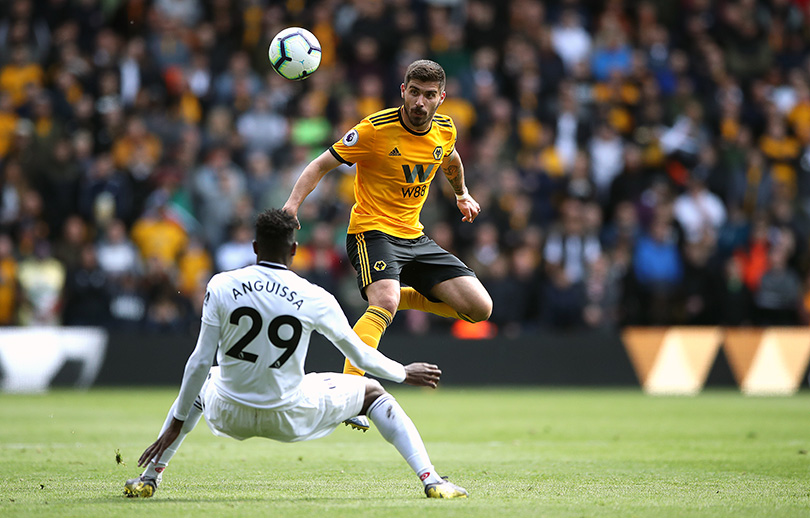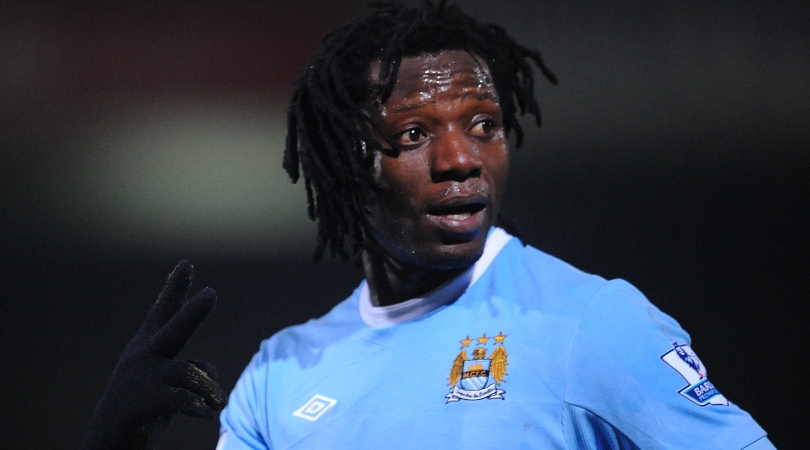Wolves’ ambitious owners understand they can’t match the Big Six – and that’s why they might actually break it
The West Midlanders' big problem is that their first XI is so well established it’s not clear how they improve it. But recognising that might be what helps them next season...

Nuno Espirito Santo’s Wolves will begin their 2019/20 season on July 25, entering the Europa League at the second qualifying stage. It’s reward for a fine first season back in the Premier League, during which Nuno’s players won points and friends with their tactical harmony, but it’s still a dubious honour and one which will exert further stress on a squad which is already one of the smallest in the division.
Nuno used just 21 players in the Premier League last season. Three of those were goalkeepers, two are no longer at the club and a further player, young defender Max Kilman, was on the pitch for just a single minute. In hindsight, that Wolves managed to balance an excellent league season with a deep run in the FA Cup was miraculous. Extending that success, including through the convoluted Europa League landscape, is clearly a challenge beyond.
So far, it’s been a quiet summer at Molineux. Teenage defender Raphael Nya has joined from Paris Saint-Germain and others of similar profile are rumoured to be following, but Fosun International are yet to fire their heavy guns. The club’s Chinese owners have public designs on the Premier League’s top six and the expectation, from the outside at least, was that this transfer period would bring a more active mobilisation.
But then that would be to misunderstand what brought Wolves to this point.
While they bear the hallmarks of other projects built on great wealth and enjoy the patronage of Jorge Mendes, their progress has been underwritten by order; one which has been architected partly by their affluence, certainly, but still one instructed by more than just the desire to assemble a lot of talented players.
It’s an approach validated by the team’s cohesion. Wolves may be admired for some of their individuals, but their true selling point is collective function. Not Ruben Neves, not Joao Moutinho, but the relationships which have been created all over the pitch. When that’s the case, when a team is greater than the sum of its parts, improvement becomes a delicate process. Instead of upgrading on a position-by-position basis, the priority must be the careful sharpening of a team’s existing dynamics and hot-housing of its atmosphere.

Any player arriving has to serve that purpose. He must complement the group’s personality, share the club’s aims and not pollute what appears to be a very fertile environment. On top of which, of course, he must also be a good player.
Get FourFourTwo Newsletter
The best features, fun and footballing quizzes, straight to your inbox every week.
Identifying those targets is difficult. Anybody good enough to improve this current Wolves side would, most likely, be of equal interest to those clubs qualified for the Champions League. In England specifically, those sides are housed within cities which typically prove more attractive to foreign players. Compared with London, Liverpool and Manchester, Wolverhampton is a hard sell, meaning that finding players who satisfy this criteria entirely is tough.
Particularly so in this instance, with Santo’s first-XI so well established. Goalkeeper Rui Patricio is of a high standard and the three centre-backs ahead of him have developed a binding chemistry. In the wing-back positions which provide the team’s thrust, Jonny and Matt Doherty each show an excellent understanding of their roles. The midfield also picks itself, even more so now that Leander Dondoncker has joined permanently, while Raul Jimenez and Diogo Jota have grown into a highly productive pair.
It’s an established order and interfering with it invites obvious risks. While, for instance, there is likely a superior alternative to Matt Doherty, whether that replacement’s abilities could be applied in the same way and with better effect is a different issue. Would he be as receptive to his head coach’s message? Would his attacking emphasis be quite the same? When a team has such a defined shape and personality – when it doesn’t exhibit obvious weaknesses – the most sensible route to improvement often lies in deepening its culture rather than changing its component parts.
Under ideal conditions, that need can be served by an academy. In most other instances, like at Wolves, it requires investment in pliable players who can be shaped for efficient, future use. It requires high-potential types who don’t necessarily serve an immediate purpose, but who provide immediate cover, contribute, and over time after acquiring the side’s tactical imperatives, create the internal competition needed to drive improvement.
It’s an argument for continuity, really, but with change localised beneath the surface layer, involving the addition of players who would not only ease the stress of the Europa League, but who could also benefit from the range of football Wolves are now able to offer.
Encouragingly, the club seems to be aiming itself in that very direction. Raphael Nya has already arrived to understudy the defence, but the list of others players to whom they’re connected exhibits a pattern. Robert Skov, Copenhagen’s willowy and gifted attacking-midfielder; Zenit’s Iranian forward Sardar Azmoun; Edson Alvarez, the young, versatile Mexican defender. Those are not the sort of vanity signings with which ambitious foreign owners are generally associated. Instead, they’re indicative of a club which appears to understand its position and recognises the folly of trying to match the elite stride for stride.
While you're here, why not take advantage of our brilliant subscribers' offer? Get 5 issues of the world's greatest football magazine for £5 – the game's greatest stories and finest journalism direct to your door for less than a pint in London. Cheers!
READ MORE...
LIST 12 expensive outcasts who are STILL at these Premier League clubs
QUIZ Can you name the 23 players to break the world record transfer fee since 1967?
Seb Stafford-Bloor is a football writer at Tifo Football and member of the Football Writers' Association. He was formerly a regularly columnist for the FourFourTwo website, covering all aspects of the game, including tactical analysis, reaction pieces, longer-term trends and critiquing the increasingly shady business of football's financial side and authorities' decision-making.

